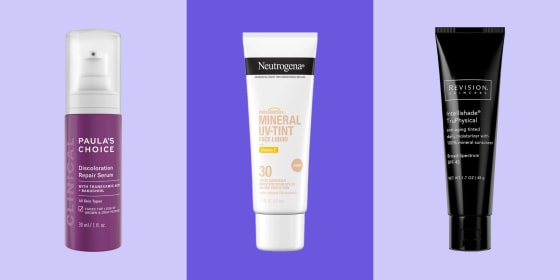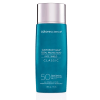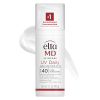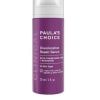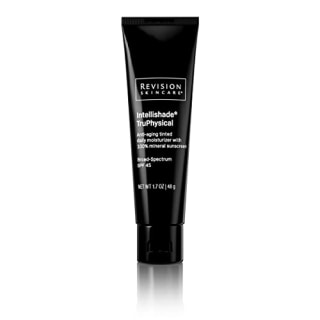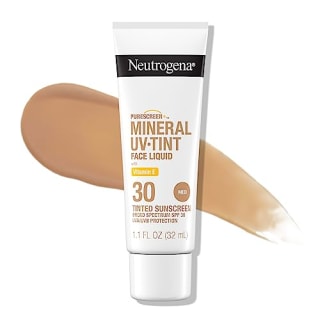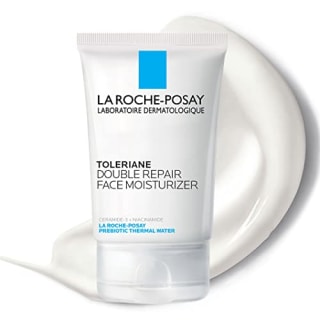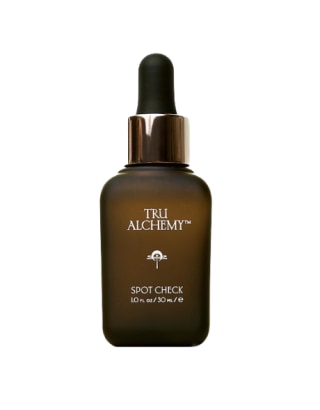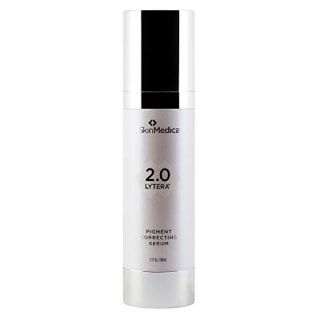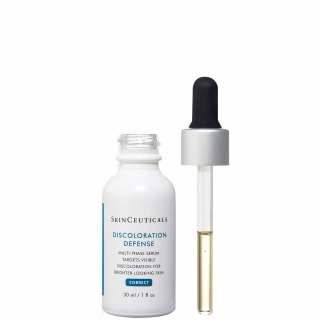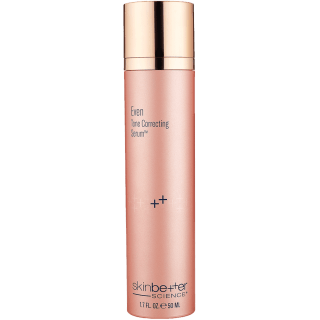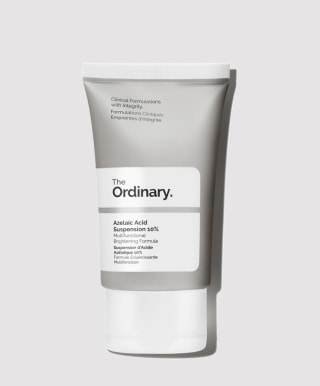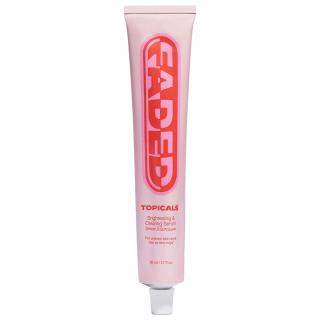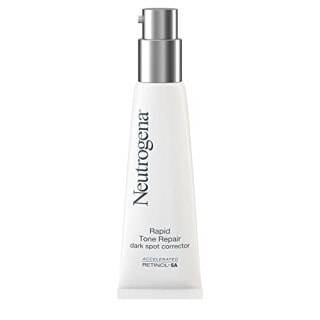Melasma is a common skin condition that’s likely to occur in women during their reproductive years. It’s characterized by dark blotchy patches, which typically appear on the face, and often appears during pregnancy — 15% to 50% of pregnant women get melasma, according to the Cleveland Clinic.
While melasma isn’t harmful, it can be annoying. So, I spoke to dermatologists about the best topical products to treat melasma as well as formulas you can use in your skin care routine to prevent future flare-ups.
SKIP AHEAD What is melasma? | How I picked the best melasma treatments | The best products for melasma | How to shop for melasma treatments | How to treat melasma | How to prevent melasma | Why trust NBC Select?
What is melasma?
“Melasma is actually a pretty complex skin condition and we find out more about it every year,” says Nazarian. It typically presents in women and people with darker skin tones and is often triggered by pregnancy or hormonal birth control pills. Melasma often has a mask-like appearance, showing up in a freckle-like pattern of brown or grayish spots on the nose, cheeks and chin (though it can also appear on the forearms or neck), according to the American Academy of Dermatology.
Melasma occurs when melanocytes, the cells in the skin that create pigment, interact with an external trigger — most commonly hormones, heat, and light.
How I picked the best melasma treatments
I asked board-certified dermatologists for their recommendations for the best topical melasma treatments. They recommend focusing on treatment and prevention by looking for products that contain the following ingredients:
- Iron oxide: Melasma is triggered by exposure to light, both UV light and light from a lamp or your computer for example, according to our experts. The best way to protect your skin is with a sunscreen that contains a tint. That’s because tinted sunscreen typically gets its pigment from iron oxide, an ingredient that blocks not only the harmful UV rays that cause sunburns and skin cancer, but also the visible light rays that can trigger melasma, according to experts. For the best protection, our experts recommended choosing a tinted mineral sunscreen because in addition to the iron oxide, mineral formulas have zinc oxide, which also blocks visible light rays.
- Niacinamide: Niacinamide is a moisturizing ingredient loved by dermatologists for its ability to treat a variety of skin concerns, including redness and irritation. It’s also a powerful treatment for melasma since it inhibits the production of pigment in the skin and the transfer of melanin between cells, meaning it can reduce and help prevent dark spots, according to experts we spoke with.
- Retinol: Retinol is best known as a treatment for fine lines and wrinkles, but experts say it’s also great for preventing and clearing hyperpigmentation in the skin and evening complexion.
- Antioxidants: Free radical damage (which you can get from sun exposure) is a known cause of skin pigmentation disorders, including melasma. Antioxidants, like niacinamide and retinol (vitamin A), are the antidote. They work at the cellular level to protect your skin cells against the damage that can cause melasma. Vitamin C is another useful antioxidant for fighting melasma-related dark spots since it’s also a brightening agent so it will treat existing hyperpigmentation and help prevent new dark spots from forming, experts say.
The best products for melasma
The most important thing you can do to prevent melasma is to wear sunscreen with iron oxide, which blocks both UV and visible light rays. Those external light sources, whether it be UV light or light from a lamp or a computer screen, will trigger a reaction in the skin where there’s excess pigment that then develops, says Dr. Erum Ilyas, a board-certified dermatologist with the Schweiger Dermatology group in Pennsylvania. To target existing melasma spots, our experts recommend serums, moisturizers and more to treat melasma.
Best sunscreens for melasma
Revision Skincare Intellishade TruPhysical
- Moisturizes the skin barrier
- Reduces fine lines
- Improves uneven tone
- Only in one shade
Tinted sunscreen formulas, which contain both broad-spectrum UV protection and physical light blockers, are crucial for preventing melasma, according to our experts. Dr. Rachel Nazarian, a board-certified dermatologist with the Schweiger Dermatology Group in New York, recommends this SPF 45 for its lightweight formula. “Heat is a trigger for melasma, so I generally don’t like things that are super heavy,” says Nazarian. (Heavy formulas can trap heat in the skin, which stimulates the production of melanin, according to a 2023 study published in the National Library of Medicine.) This formula also contains vitamin C, which helps brighten skin and block free radicals (that activate pigment producing cells), according to the brand.
Colorescience Sunforgettable Total Protection Face Shield
- Suitable for all skin types
- Improves uneven tone
- Has a demi-matte finish
- 2 minutes for shade to adjust
This lightweight tinted formula, which comes recommended by Dr. Carmen Castilla, a board-certified dermatologist at the New York Dermatology Group in Manhattan, has iron oxide in it, so it should help block harmful UV rays and the visible light rays that can trigger melasma. This includes UVA and UVB rays, blue light, infrared radiation and pollution, according to Colorescience. It comes in four adjustable shades, which means it dispenses white at first and matches your skin tone as you rub it into your skin. The sunscreen has SPF 50 and is water-resistant up to 40 minutes, according to the brand.
Neutrogena Purescreen+ Mineral UV Tint Face Liquid Sunscreen
- Nourishing
- Lightweight
- Can easily layer under makeup
- Small size
For a tinted sunscreen at a lower price point than other options on our list, Ilyas recommends this Neutrogena broad-spectrum SPF 30 because it’s particularly good for skin of color. “Most of the tinted sunscreens out there have only one tint that is [supposed to be] one-size-fits-all, which we know doesn’t work,” says Ilyas. This formula which comes in four hues, also has vitamin E to help prevent hyperpigmentation triggered by free radical damage. Plus, it doesn’t leave behind a white cast, according to the brand.
Best moisturizers for melasma
La Roche Posay Toleriane Double Repair Face Moisturizer
- Lightweight
- Soothing
- Suitable for all skin types
- Small size
Supporting the health of the skin barrier is key to addressing any skin concern, including melasma — that’s why Castilla recommends La Roche Posay’s Toleriane Double Repair Face Moisturizer. It’s formulated with ceramides, which function like mortar between skin cells to strengthen the skin barrier. This formula also has niacinamide, which can inhibit the production of pigment and block the transfer of melanin between cells so you have less proliferation of that pigmentation, says Ilyas.
EltaMD UV Daily SPF 40 Face Sunscreen Moisturizer
- Suitable for all skin types
- Also comes in a tinted version
- Reduces fine lines
- Pump can be difficult
Using this SPF moisturizer eliminates the need for two separate products because it can hydrate your skin while providing sufficient sun protection with an SPF rating of over 30, according to experts in our guide to the best face moisturizers with SPF. Reviewers say it’s lightweight, doesn’t clog up their pores and leaves no white cast.
Best serums for melasma
Tru Alchemy Spot Check
- Reduces fine lines
- Free of common irritants
- Can use everywhere
- Results can take weeks/months
Serums are vehicles that deliver an active ingredient to your skin, says Ilyas. You can use them in the morning or at night, layer them under moisturizer or use them alone. When it comes to the best serums for melasma, our experts recommend looking for formulas that include several active ingredients so you can target the hyperpigmentation from all sides. “Spot Check has a lot of actives that are all focused on pigmentation,” says Ilyas. Specifically, it has niacinamide and white shitake extract to help brighten dark spots and even your complexion, according to the brand.
SkinMedica Lytera 2.0 Pigment Correcting Serum
- Non-irritating
- Safe for daily use
- Suitable for all skin types
- Higher price point
“SkinMedica Lytera has been around for a really long time and has been shown to be pretty awesome in improving melasma and pigment,” says Nazarian. It has tranexamic acid, which many dermatologists recommend for pigmentation disorders, since it works as a brightening agent. (In the case of melasma, it works to brighten dark spots by curbing the production of melanin in skin and by blocking post-inflammatory hyperpigmentation.)
One important caveat: If you are pregnant, you have to get it approved by your OB-GYN since it can cross the placental barrier (meaning it may be absorbed through the skin into your bloodstream where it can then reach the fetus), says Nazarian. While it hasn’t been linked to birth defects, there’s not enough data to guarantee its safety, which is why some doctors recommend avoiding it, she says.
SkinCeuticals Discoloration Defense
- Suitable for all skin tones
- Lightweight
- Free of common irritants
- Higher price point
Castilla recommends this dark spot corrector for its trio of brightening ingredients: kojic acid, niacinamide and tranexamic acid. Not only does it improve dark spots and even out your skin tone, but it also helps minimize the recurrence of discoloration, according to the brand. For the best results, use three to five drops of this serum twice daily. In the morning, apply it after your vitamin C serum and before your moisturizer and sunscreen, according to Skinceuticals. If you’re pregnant, consult with your doctor before using this product.
Paula’s Choice Clinical Discoloration Repair Serum
- Creamy, lightweight texture
- For many discoloration types
- Improves dull skin
- Potent formula
This repair serum, recommended by Nazarian, has brightening ingredients to treat existing melasma and block the formation of new pigmentation. Niacinamide and tranexamic acid work to brighten dark spots, while bakuchiol, a plant-based retinol alternative, helps even out skin tone, according to the brand. Again, make sure to clear this formula with your doctor if you are pregnant.
SkinBetter Science Even Tone Correcting Serum
- Reduces hyperpigmentation
- Creamy, lightweight texture
- Free of common irritants
- Higher price point
This pregnancy-safe option comes recommended by Nazarian since it brightens without the use of hydroquinone, another ingredient that you should avoid during pregnancy, she says. Instead, it has hexylresorcinol and kakadu plum extract (vitamin C), which are both pregnancy-safe skin brighteners, according to the brand. You can use it day and night — just apply it to clean, dry skin and use it in combination with SPF for the best benefit, according to Skinbetter Science.
The Ordinary Azelaic Acid Suspension 10% Exfoliator
- Gentle formula
- Available in multiple sizes
- Creamy, lightweight texture
- Need sun protection after
Azelaic acid, which this product is formulated with, is a great over-the-counter (and pregnancy-safe) alternative to prescription hydroquinone, an old-school treatment for melasma. “[Azelaic acid] blocks the enzyme in the skin that triggers pigmentation,” says Ilyas. Look for a formula with 10% azelaic acid, she says, like this exfoliator from The Ordinary. You can use it as part of your morning or evening skincare routine, though you should not use it at the same time you use vitamin C, retinol or peptides to avoid irritation, according to the brand.
Topicals Faded Brightening and Clearing Serum
- A spot treatment
- Safe to use daily
- Long lasting tube
- Strong sulfur-like smell
Topical’s Faded Serum works to gently reduce discoloration and dark spots on various skin tones. NBC Select editors tried this serum for two months and saw dark spots on their faces and bodies lighten and fade after consistent use. The serum uses a blend of brightening ingredients like tranexamic acid, which helps with melasma, according to the brand. Because of this ingredient, talk to your doctor before using it if you are pregnant, experts say.
Best retinol treatment for melasma
Neutrogena Rapid Tone Repair Retinol and Vitamin C Dark Spot Corrector
- Safe for daily use
- Reduces fine lines
- Improves uneven tone
- Can irritate some skin types
“Whenever you irritate melasma, it has the potential to get worse,” says Castilla. If you want to introduce a retinol to your skin care routine, go slow and look for a gentle formula to prevent your melasma from getting worse. Experts recommend Neutrogena’s retinols as some of the most gentle formulas on the market. Nazarian likes this option because in addition to being gentle, it contains antioxidant vitamin C to target hyperpigmentation.
How to shop for melasma treatments
When shopping for over-the-counter melasma treatments, experts recommend looking for products with pregnancy-safe formulas, broad-spectrum SPF and active ingredients that target pigmentation. Below, we highlight the most important things to consider when shopping for a melasma treatment.
- Always opt for tinted or mineral sunscreens. Wearing SPF every day protects your skin from UV rays that cause sun damage and lead to skin cancer. For anyone with melasma — it’s especially crucial because both UV rays and visible light rays trigger the production of melanin, which can cause hyperpigmentation like melasma. When shopping for sunscreens, experts stress the importance of looking for tinted sunscreens since they typically have iron oxides, the ingredient that blocks visible light in addition to UV rays. Mineral sunscreens (formulated with zinc oxide) also block visible light. Tinted mineral sunscreens can also help eliminate the white cast that has traditionally plagued mineral sunscreens and is particularly frustrating for people with darker skin tones.
- Introduce new ingredients slowly. Irritation can exacerbate melasma, so if you’re introducing a new ingredient into your skin care routine such as retinol, look for a gentle formula and start slow. Begin by introducing the new product one or two days a week and increase your usage from there.
- Load up on antioxidants. The best melasma treatments target existing hyperpigmentation and block the formation of new dark spots. Antioxidants like vitamin C not only brighten skin, but also block the formation of an enzyme in the skin called tyrosinase, according to Ilyas, which triggers skin pigmentation. Other hyperpigmentation-fighting antioxidants commonly found in melasma treatments include niacinamide, vitamin E and kojic acid.
- Check if formulas are pregnancy-safe. Hormonal changes during pregnancy are believed to trigger the development of melasma (and can also make existing melasma worse), according to the American Academy of Dermatology. However, some of the most effective melasma treatments — namely those that contain hydroquinone and tranexamic acid — aren’t pregnancy safe. If you are pregnant or breastfeeding, be sure to clear your melasma treatment with your doctor.
How to treat melasma
One way to prevent and treat melasma is to target melasma triggers. Another is to block an enzyme in the skin called tyrosinase. “This enzyme is actually what’s responsible for triggering pigmentation in the skin,” says Ilyas. “If we can block that enzyme from working, then maybe you could have less pigment as a result of it,” she says. Antioxidants, including vitamins C and E, niacinamide, and retinol do this well. “Retinol does so much for pigment. It not only blocks pigmentation in the skin, it can actually even out your complexion,” says Ilyas. “It’s very good at identifying what’s discolored and what’s normal and evening out the complexion,” she says.
Maintaining the health of your skin barrier — by keeping your skin well hydrated and free of cracks and dry patches — can also help address the appearance of hyperpigmentation, according to Castilla.
How to prevent melasma
Experts stress that treatment for melasma can only truly be effective if you’re also working on melasma prevention. There is likely a genetic predisposition to melasma, but that doesn’t mean you’re doomed to a lifetime of hyperpigmentation from the moment you encounter a melasma trigger, says Castilla.
The single most important thing you can do to prevent melasma is wear sunscreen every day, says Castilla. “And it’s not just regular old sunscreen. You typically want to have a physical blocker like zinc oxide or titanium dioxide,” she says. Not only will you get better broad-spectrum UV protection, physical blockers also obstruct visible light.
Meet our experts
At Select, we work with experts who have specialized knowledge and authority based on relevant training and/or experience. We also take steps to ensure all expert advice and recommendations are made independently and without undisclosed financial conflicts of interest.
- Dr. Carmen Castilla, M.D., is a board-certified dermatologist at the New York Dermatology Group in Manhattan specializing in both medical and cosmetic dermatology.
- Dr. Rachel Nazarian, M.D., FAAD, is a board-certified dermatologist with the Schweiger Dermatology group in New York, whose research includes skin disease treatment.
- Dr. Erum Ilyas, M.D., FAAD, is a board-certified dermatologist with the Schweiger Dermatology group in Pennsylvania. Her expertise includes pediatric and medical dermatology and skin cancer treatment.
Why trust NBC Select?
I am an NBC Select contributor and former Glamour editor who has covered beauty and wellness treatments for over a decade. For this article, I spoke to three dermatologists about the best ways to prevent and treat melasma and highlighted their top skin care picks and the rationale behind them.
Catch up on NBC Select’s in-depth coverage of tech and tools, wellness and more, and follow us on Facebook, Instagram, Twitter and TikTok to stay up to date.
